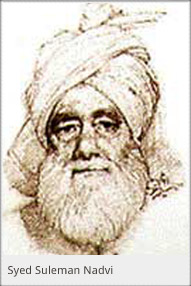This institution came into existence in 1894 as a result of the efforts of some religious minded government officials, ulema, and sufis, who wished to bring the ulema together and remove sectarian differences. The main work of the organization was the establishment of a Dar-ul-Uloom at Lucknow. For some time Shibli Nomani, Syed’s co-worker for many years, was associated with the institution. Under his influence it gained importance, but in 1914 he was forced to resign.
Shibli Nomani wrote extensively on Islam, highlighting those periods and personalities that offered guidance, and provided inspiration to the Muslims, enabling them to take their proper place in the world. His writings include the series “Heroes of Islam”. The first book of this series was “Al-Mamoon”, a biography of Mamoon-ur-Rasheed. Other books in the series included the biographies of Imam Abu Hanifa, Imam Ghazali and Maulana Roomi.
Through his writings, Shibli tried to refute western allegations against Islam and Muslims. His Tarajjum gave a fairly complete account of the steps taken by the Muslims in the heyday of their glory, and incorporated into Arabic, the fruits of the learning of Greece, Iran, and India etc. He took great pains to pick out and train promising youth to carry on his work and spread his message. His basic purpose remained to train and educate Muslim youth so that they could unite and lead their nation out of despondency.
 A magnificent building was constructed for the Dar-ul-Uloom with a grant from the State of Bhawalpur. The tradition of training in literary craftsmanship and style of modern Arabic was inherited by the institution. The Dar-ul-Musannifin, or “Academy of Authors”, at Azamgarh, manned by the former students of the Nadva, is a byproduct of the institution.
A magnificent building was constructed for the Dar-ul-Uloom with a grant from the State of Bhawalpur. The tradition of training in literary craftsmanship and style of modern Arabic was inherited by the institution. The Dar-ul-Musannifin, or “Academy of Authors”, at Azamgarh, manned by the former students of the Nadva, is a byproduct of the institution.
This article was last updated on Sunday, June 01, 2003






